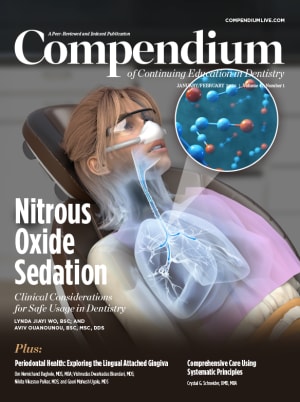Education That Makes a Difference
Jack Dillenberg, DDS, MPH
One of the guiding principles of the Arizona School of Dentistry & Oral Health (ASDOH) is to produce new dentists who are educated to make a profound difference in the health of this nation and of the world through their understanding of oral health and its integration with total health. These young men and women who have been identified to participate in this program become great doctors, but at the same time they are also educated to become community leaders. Over the past four years, 36% of ASDOH graduates are practicing in community clinics throughout the United States.
The difference begins with the application process. In the past, dental education has relied primarily on GPAs and DATs, and has not focused on individuals who want to work with underserved populations. At ASDOH, once the applicant reaches a certain academic level, the most important admission criterion is community service. Applicants who are accepted have an average of 700 hours of community service. The average age of incoming students is 27 years old, and many have experience in the military, Peace Corps, community settings, or working on an American Indian reservation.
In order to develop the leadership skills of the students, the curriculum had to evolve to allow time for dentistry in the community experiences. It begins with an aggressive and comprehensive basic science curriculum, which is taught in a systems approach in a modular fashion. Students take Part I of the national boards in the first year, which opens up the second year for extensive preclinical experiences and dentistry in the community experiences.
The nature of this curriculum is designed to produce a type of super general dentist, who is comfortable going to rural areas where there is no endodontist or periodontist, and doing complex procedures rather than sending the patient to travel great distances for specialty care. During the third year, skilled clinicians mentor the students as they provide comprehensive care. Students do their competencies at different times as they are ready, and their comprehensive care director certifies them.
There are many individuals with special needs who are underserved because oral health providers do not receive enough experience treating the special patient in many dental schools. At ASDOH, every student rotates through the special care clinic. Additionally, students and faculty from the Master of Social Work (MSW) program at Arizona State University spend three days a week working with ASDOH students in the clinic, educating them to be a referral source for patients who have mental or behavioral health issues. Dental students then have a much better understanding that they are part of a healthcare system.
In the fourth year, the program branches in a distinctly different direction from many traditional dental schools. The students go away to community clinics throughout the U.S. for five-week rotations five times during the year. These 70 clinics have dental directors and other clinicians who are adjunct faculty. They are calibrated and able to provide training and evaluation similar to what is done in the school clinic. In the real world scenario of these healthcare clinics, students see on average 8 to 12 patients a day; while in a traditional dental school, students, on average, treat two patients a day.
Another important feature of ASDOH is the requirement for students to take five courses online in public health. This is not an elective; every dental student graduates with a certificate in public health. Students can, if they choose, take additional courses and obtain a full Masters of Public Health. ASDOH graduates a significant number of students with dual degrees.
The Arizona School of Dentistry & Oral Health has been open for 10 years and has graduated four classes. ASDOH is the only dental school in the U.S. with "oral health" in its name, and this identity was chosen very deliberately. It’s not just about teeth, it’s about improving health—and the belief that dentists have an important role to play in addressing the myriad of issues that influence the health status of people in the community where they live and work.
The ASDOH philosophy maintains that the concept of public health is not simply providing healthcare for the economically disadvantaged. Instead, it exists within a much broader context of understanding that public health is not just about teeth; it’s about the person attached to the tooth; it’s about the family attached to the person; and, ultimately, it’s about the community that’s attached to that family.
About the Author
Jack Dillenberg, DDS, MPH
Dean, Arizona School of Dentistry & Oral Health
A.T. Still University
Mesa, Arizona
